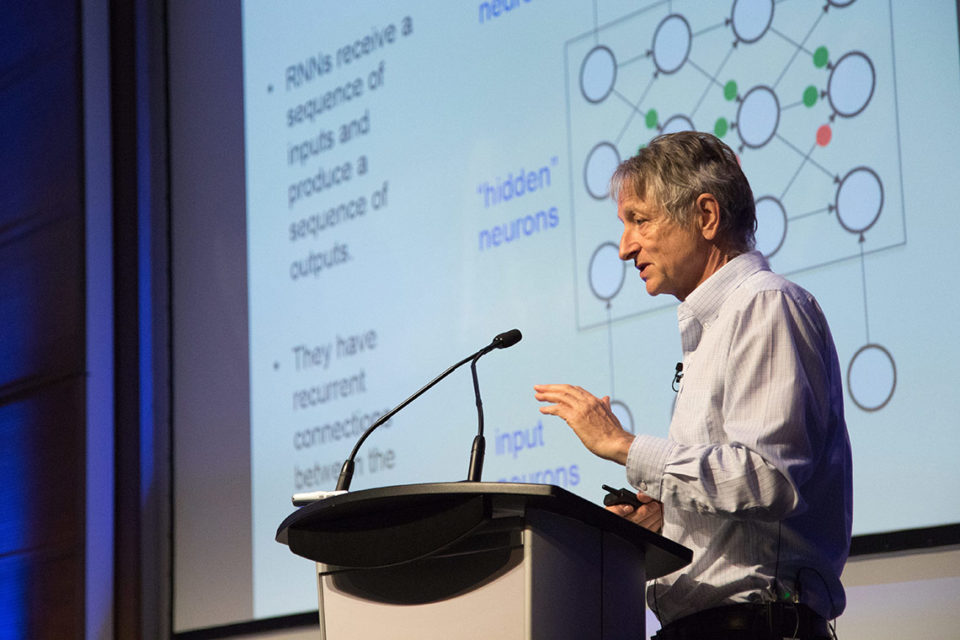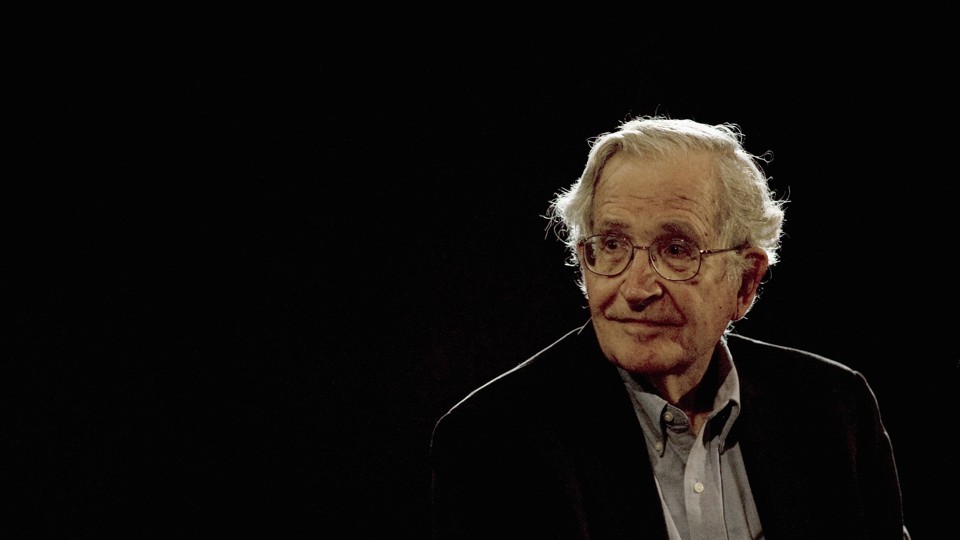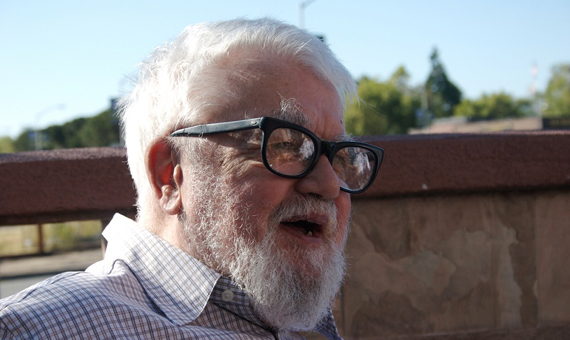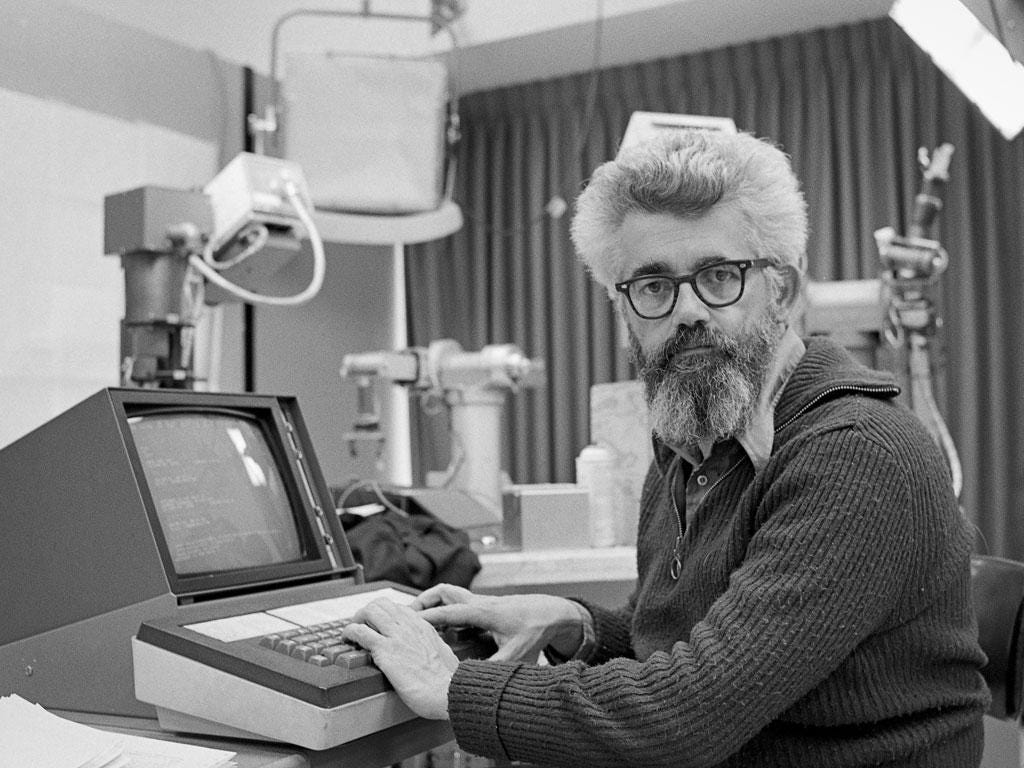Who are the “godfathers of AI”?
If you follow latest news about Artificial Intelligence, you will frequently read quotes from the so-called ” Godfathers of AI”. In this post I collected and summarized the 10 most shared stories that made direct references to these godfathers.
The most frequently mentioned AI leaders were:
The most frequently mentioned topics were:
- Human brain
- University of Toronto
- Deep learning
- Ethics
- Neural network
- Stanford University
- Carnegie Mellon University
- Large dataset
Create content with an AI-powered Research Assistant

TABLE OF CONTENTS 👇
The ” Father of Artificial Intelligence” Says Singularity is 30 years away (futurism.com) – February, 2018
Topics: artificial life, Ray Kurzweil, artificial intelligence, Kurzweil, global warming, world government, chemical evolution, human brains
- It is that long-awaited point in time — likely, a point in our very near future — when advances in artificial intelligence lead to the creation of a machine (a technological form of life?)
- Schmidhuber says it “is just 30 years away, if the trend doesn’t break, and there will be rather cheap computational devices that have as many connections as your brain but are much faster,” he said.
- Of course, the development that he is referring to is the development of these artificial superintelligences, a thing that Schmidhuber says “is something that transcends humankind and life itself.”

AI Spotlight: Meet Professor Geoffrey Hinton, Godfather of AI (techstartups.com) – December, 2017
Topics: Artificial Intelligence, machine learning, neural networks, deep learning, experimental psychology, data compression, pioneering work, graduate students
- He continued his study at the University of Edinburgh where he was awarded a PhD in artificial intelligence in 1977 for research supervised by Christopher Longuet-Higgins.
- Professor Hinton is currently the leading a government-backed research facility in Toronto who wants to create a partially automated factory that would mass-produce transplantable stem cells into disease-fighting cells using Artificial Intelligence (AI).
- He and his two graduate students, Alex Krizhevsky and Ilya Sutskever, were hired by Google to develop Android voice search.

‘Godfather’ of deep learning is reimagining AI – Phys.org (phys.org)
Topics: University of Toronto, Toronto, New York University, Wired magazine, Google, Nicholas, Gary Marcus, large datasets
- Hinton, a University Professor Emeritus at the University of Toronto, recently released two new papers that promise to improve the way machines understand the world through images or video – a technology with applications ranging from self-driving cars to making medical diagnoses.
- ” This is a much more robust way to detect objects than what we have at present,” Hinton, who is also a fellow at Google‘s AI research arm, said today at a tech conference in Toronto.
- With his new research, there’s little doubt Hinton is doing his part to move the AI ball forward – even if it draws on ideas he’s been contemplating for the past 40 years.

Noam Chomsky: Where Artificial Intelligence Went Wrong (theatlantic.com) – December, 2017
Topics: practical applications, unified theory, theoretical framework, biological system, cognitive system, information processing, statistical models, systems biology
- The success of fields like personalized medicine and other offshoots of the sequencing revolution and the systems-biology approach hinge upon our ability to deal with what Chomsky called ” masses of unanalyzed data” —placing biology in the center of a debate similar to the one taking place in psychology and artificial intelligence since the 1960s.
- One of the points he made was that AI and robotics got to the point where you could actually do things that were useful, so it turned to the practical applications and somewhat, maybe not abandoned, but put to the side, the more fundamental scientific questions, just caught up in the success of the technology and achieving specific goals.
- Well, if success is defined as getting a fair approximation to a mass of chaotic unanalyzed data, then it’s way better to do it this way than to do it the way the physicists do, you know, no thought experiments about frictionless planes and so on and so forth.
- One way to do it is okay I’ll get my statistical priors, if you like, there’s a high probability that tomorrow’s weather here will be the same as it was yesterday in Cleveland, so I’ll stick that in, and where the sun is will have some effect, so I’ll stick that in, and you get a bunch of assumptions like that, you run the experiment, you look at it over and over again, you correct it by Bayesian methods, you get better priors.
- A very different approach, which I think is the right approach, is to try to see if you can understand what the fundamental principles are that deal with the core properties, and recognize that in the actual usage, there’s going to be a thousand other variables intervening—kind of like what’s happening outside the window, and you’ll sort of tack those on later on if you want better approximations, that’s a different approach.

The Godfather of AI Was Almost a Carpenter – Bloomberg (bloomberg.com) – December, 2017
Topics: artificial intelligence, Google, Emeritus Professor, University of Toronto, Geoffrey Hinton, Chief Scientific Adviser, preeminent expert, Vector Institute
- He is an Engineering Fellow at Google, managing Brain Team Toronto, the Chief Scientific Adviser of the Vector Institute, and Emeritus Professor at the University of Toronto.
- His name is Geoffrey Hinton, and this Bloomberg 50 profile of him takes a peek into the life of the world’s preeminent expert in artificial intelligence.

The godfather of artificial intelligence is a Torontonian (torontolife.com) – September, 2017
Topics: Google, Apple, Facebook, Uber, health care, neural networks, Toronto, government funding
- He’s in charge of the Vector Institute, a U of T–affiliated organization that will apply AI to a range of fields, including finance, construction and health care.
- Vector’s existence is the reason Google and Uber have created AI labs in Toronto—the institute only accepted international funding if its investors set up shop north of the border.

The True Father of Artificial Intelligence – OpenMind (bbvaopenmind.com) – September, 2016
Topics: Caltech, Marvin Minsky, Stanford university, California Institute of Technology, machine intelligence, artificial intelligence, personal computer, Ibm
- However, McCarthy is enshrined as the father of artificial intelligence not only for managing to open the field and turn it into a new area of research, but also for continuing to provide evidence for its development for half a century.
- “The speed and memory capacity of today’s computers may be insufficient to stimulate many of the more complex functions of the human brain, but the main obstacle is not the lack of capacity of the machines, but our inability to write programs that take full advantage of what we have,” he came to enunciate in those years.
- However, despite his efforts, this system did not help McCarthy to achieve his true objective: that a computer would pass the Turing test, according to which a human asks questions through a computer screen, and if he cannot decide whether it’s another human or a machine that is responding, this is definitively intelligent.
- Near the end of the research stage of his career, in 1978, McCarthy had to give up on his purist idea of artificial intelligence: “To succeed, artificial intelligence needs 1.7 Einsteins, two Maxwells five Faradays and the funding of 0.3 Manhattan Projects,” he resignedly recognized.
Marvin Minsky, “father of artificial intelligence,” dies at 88 (news.mit.edu) – January, 2016
Topics: MIT Media Lab, Marvin Minsky, Harvard University, Seymour Papert, pioneering work, Artificial Intelligence, Princeton University, Nicholas Negroponte
- Minsky joined the faculty of MIT’s Department of Electrical Engineering and Computer Science in 1958, and co-founded the artificial intelligence Laboratory (now the Computer Science and Artificial Intelligence Laboratory) the following year.
- Minsky received the world’s top honors for his pioneering work and mentoring role in the field of artificial intelligence, including the A.M. Turing Award — the highest honor in computer science — in 1969.
- Faculty Achievement Award; the Computer Pioneer Award from IEEE Computer Society; the Benjamin franklin Medal; and, in 2014, the Dan david Foundation Prize for the Future of Time Dimension titled “Artificial Intelligence: The Digital Mind,” and the BBVA Group’s BBVA Foundation Frontiers of Knowledge Lifetime Achievement Award.
:format(webp)/cdn.vox-cdn.com/uploads/chorus_asset/file/6452569/hinton-lecun-2006-2.0.jpg)
Welcome to the AI Conspiracy: The ‘Canadian Mafia’ Behind Tech’s Latest Craze (recode.net) – July, 2015
Topics: big data, computer scientists, machine learning, deep learning, speech recognition, neural network, core technology, tech companies
- In 2013, Hinton was hired as a distinguished researcher at Google, where he works on its expanding deep learning division; LeCun was tapped to lead Facebook’s AI efforts later that year; and last week, Ibm announced it was working with Bengio, a professor at the University of Montreal, to infuse Watson, its super-computer, with deep learning.
- Fruits of their efforts are already starting to appear in front of consumers, with deep learning woven into products like the new Google Photos app and in the facial recognition technology infused in Facebook’s new app, Moments.
- In 2012, the Google “Brain” team — a unit born in Google x with the audacious aim to build the largest artificial neural network, an AI brain — released a seminal finding: They sat the brain in front of millions of Youtube videos and, without input on feline features, it began spotting them.
- The main reason it has been taking off in the last few years is scale,” said Andrew Ng, the scientist who launched the Google Brain team (called the deep learning team) and currently runs a similar team at Chinese search giant Baidu.
- “There may or may not be products that come out of this for the next two or three or four or five years,” LeCun told Re/code.
How a Toronto professor’s research revolutionized artificial intelligence (thestar.com) – April, 2015
Topics: big data, Seymour Papert, speech recognition, computer vision, machine learning, DARPA, based systems, Silicon Valley
- Hinton now spends three-quarters of his time at Google and the rest at U of T. Machine learning theories he always knew would work are not only being validated but are finding their way into applications used by millions.
- He arrived that summer for what he describes as a trial run — he was hesitant to leave Toronto, where he has lived with his family for most of the past quarter-century — and the short-term stint didn’t have any other obvious job title.
- The man who designed it claimed it would eventually be able to read and write, and the story said it would be the “first device to think as the human brain … Perceptron will make mistakes at first, but will grow wiser as it gains experience.”
- Ask anyone in machine learning what kept neural network research alive and they will probably mention one or all of these three names: Geoffrey Hinton, fellow Canadian Yoshua Bengio and Yann LeCun, of Facebook and New York University.
- “It’s good to have some people considering the ethics and implications of this sort of thing, but it’s not something I’m worried about any time in the next, say, 40 years,” says Google senior fellow Jeff Dean.

John McCarthy: Computer scientist known as the father of AI (independent.co.uk) – November, 2011
Topics: Silicon Valley, Artificial Intelligence, Marvin Minsky, California Institute of Technology, Stanford, cloud computing, Steve Jobs, computer scientist
- John McCarthy, an American computer scientist pioneer and inventor, was known as the father of Artificial Intelligence (AI) after playing a seminal role in defining the field devoted to the development of intelligent machines.
- In 1958 he created the Lisp computer language, which became the standard AI programming language and continues to be used today, not only in robotics and other scientific applications but in a plethora of internet-based services, from credit-card fraud detection to airline scheduling; it also paved the way for voice recognition technology, including Siri, the personal assistant application on the latest iphone 4s.
- Described as ” focused on the future,” McCarthy was ” always inventing, inventing, inventing,” and in the 1960s he conceived the idea of computer time-sharing or networking, which allowed users to share data by linking to a central computer; it ultimately lowered the cost of using computers.
